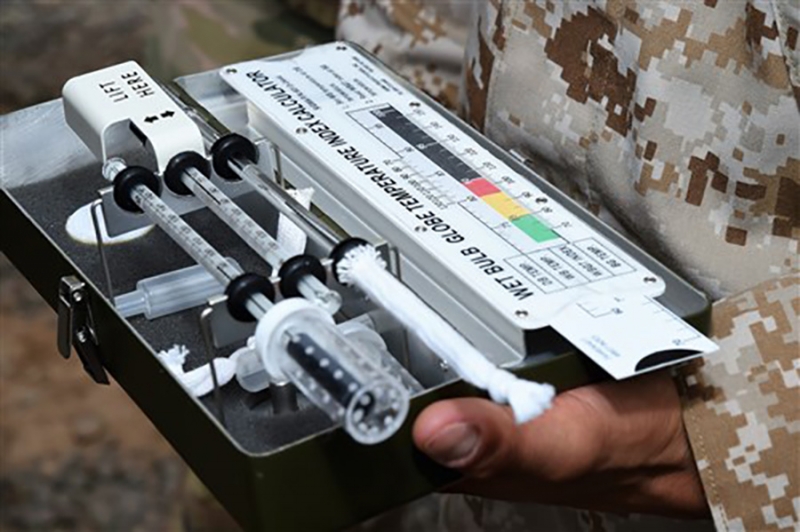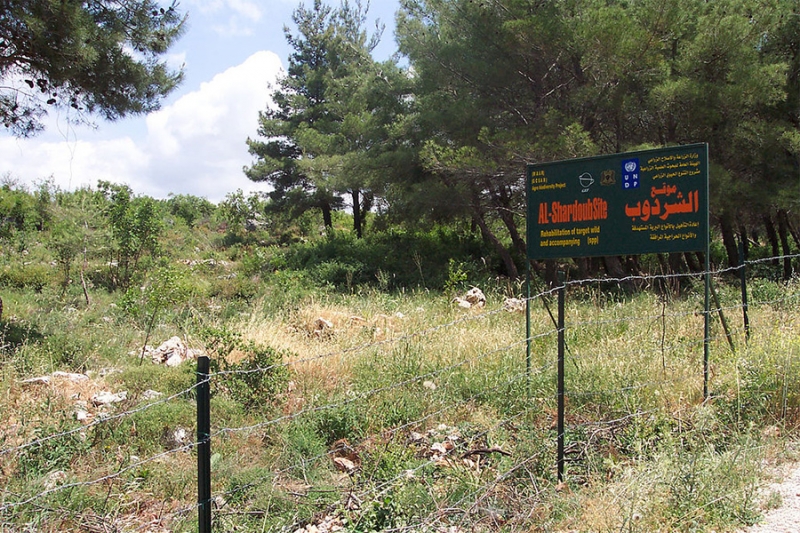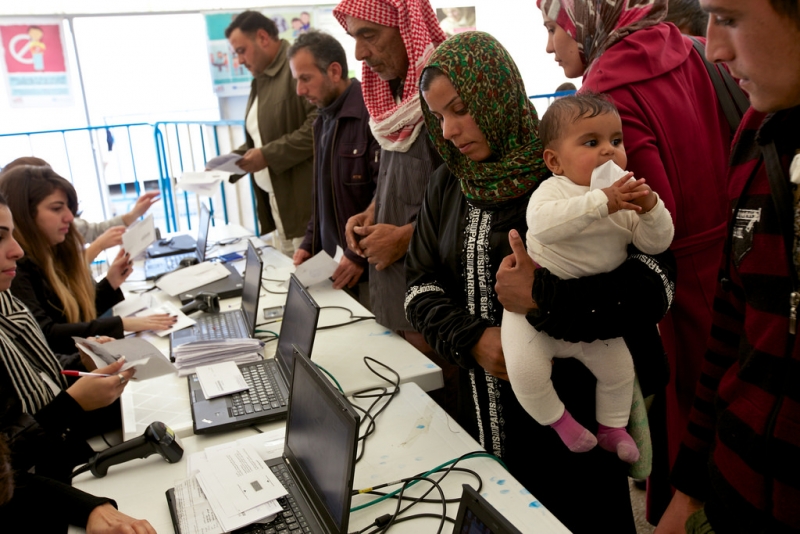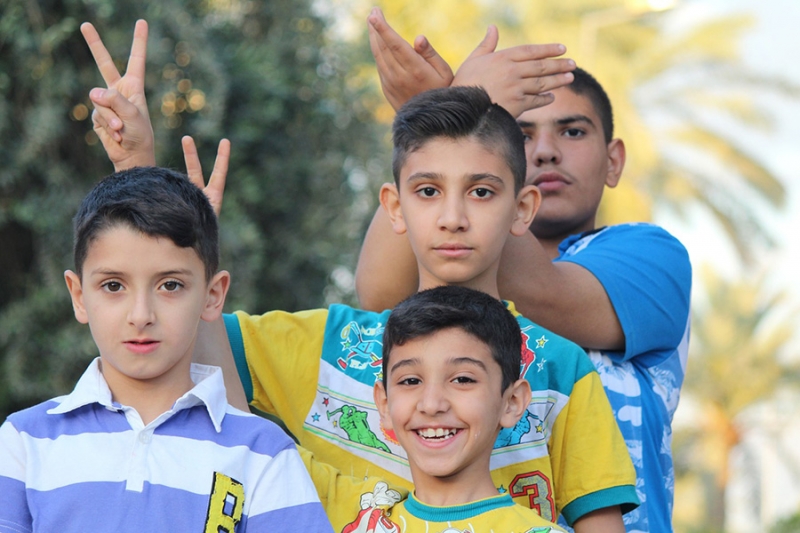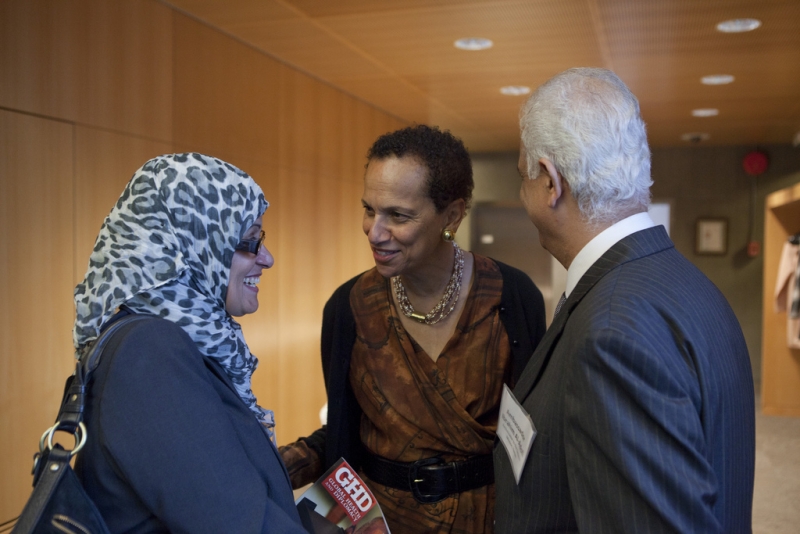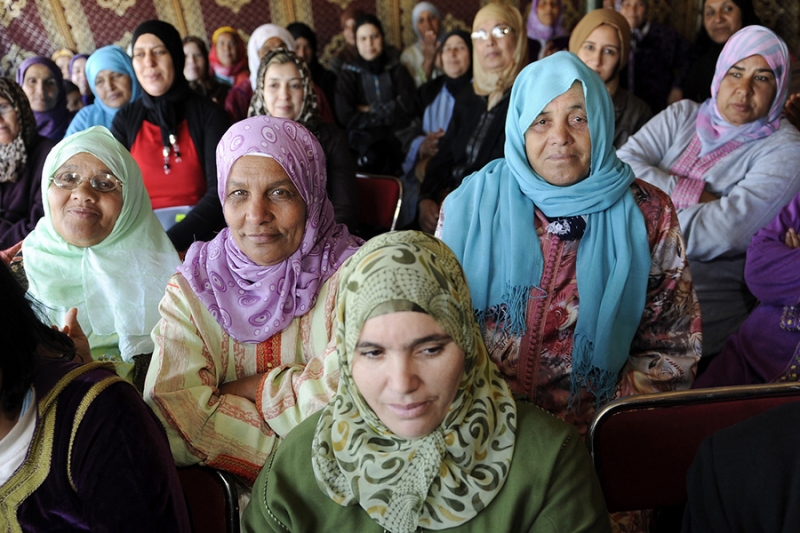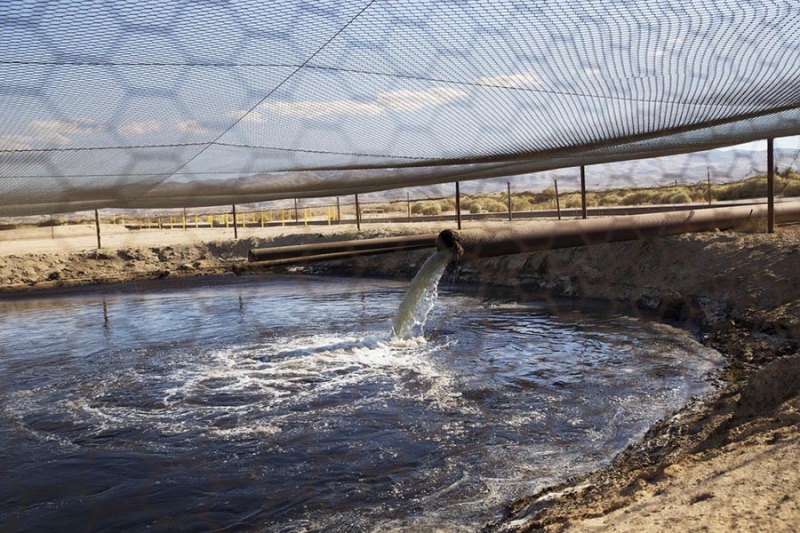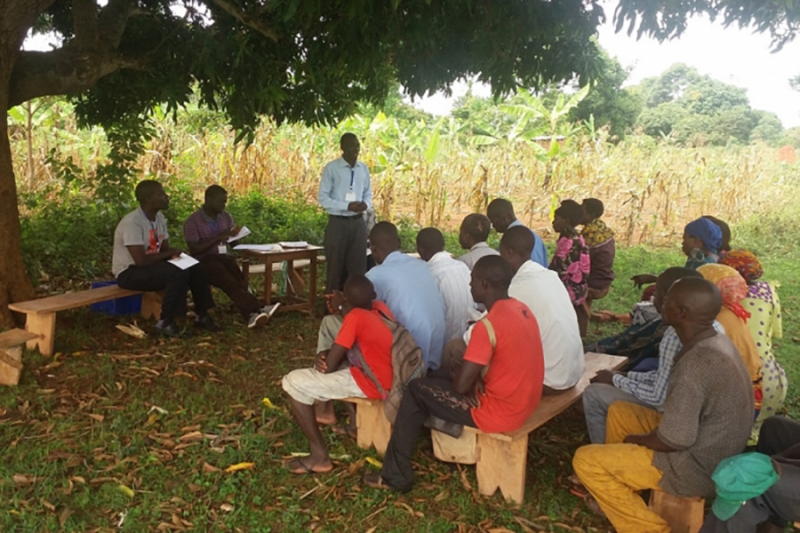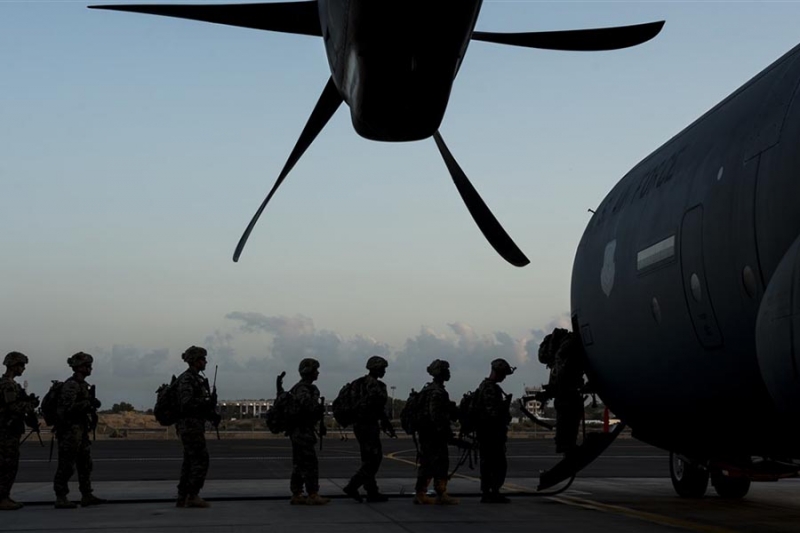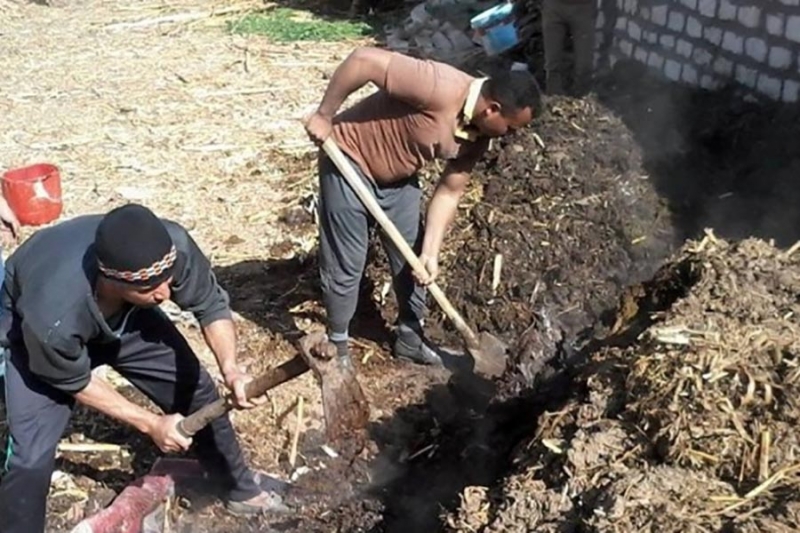The solution seeks to improve public and environmental health in the Egyptian countryside through the safe disposal of wastewater and sewage treatment and re-use of wastewater in irrigation.
The objectives:
- To build a model for liquid waste and used water treatment facility, simple and low-cost in its design, construction, operation and maintenance, to be a model for rural Egyptian communities, promoting the health of the public and the environment;
- To reduce the pollution from miss use for the wastewater in the poor communities preventing the ground water from pollution , this also resulted from the wrong way in getting provide healthy environment for the poor communities in the rural rationalize the use of water in the targeted communities and encourage the use of satiation`s treated water in irrigation;
- To raise awareness of the targeted communities about the healthy and environmental ways of disposal of wastewater;
- To reduce the levels of groundwater that cause damage in buildings foundation , bad smells and spread of harmful insects.
The system components:
- Assembly lines: connecting houses with the system.
- Collection Manhole point: gathering waste water and transferring it to the lifting station.
- Lifting Station: Forcing the waste water into the main pumps to treatment station.
- The treatment plant: composed of an anaerobic bacteria treatment chamber; an aerated weir; an air injection tank, and finally a gravel bed planted with local cane treating organic matter with naturally generated anaerobic bacteria feeding filtered water into a gravity-fed sequence of three shallow ponds for solar treatment.
The model represents a technology alternative to the government wastewater solution and has been successfully implemented by the Together Association for Development and Environment in cooperation with the private sector in the two adjacent villages of Al-Beni Suef (Jaafar and Jacob), with a total population of 10 thousand people and in Abd El Kawy Shaeetan village in Fayoum Governorate with a total population of 3 thousand people.
Partners: IFAD, Together Association for Development and Environment, private sector, local communities
Contact details:
Egypt
Together Association for Development and Environment (TADE)
31 A Elfateh st, close to Eltarbia and Eltalem building 5th floor Ard Soltan - El Minia - Egypt
Mr. Sameh Seif Ghaly, Head of the Board
Fax: +20862321443
Mobile: +201222231029
Email: This email address is being protected from spambots. You need JavaScript enabled to view it.; This email address is being protected from spambots. You need JavaScript enabled to view it.
Geographic focus: Iraq
Thematic focus areas supported by the mechanism:
The development of the housing sector involves other areas that affect its operation and efficiency; these are: land management; housing production; housing finance; infrastructure for housing; housing management and maintenance; housing construction materials and technologies and informal housing.
Steps/stages in practical application of the mechanism:
- Adopt a participatory approach based on engaging key Iraqi decision makers in the policy development process to ensure buy-in and facilitate downstream implementation.
- Create technical working groups from relevant stakeholders assigned according to the main thematic areas of the policy as mentioned above (point 6). Those groups discussed relevant issues, challenges, policies and means of implementation.
Results to Date:
The final housing policy document (printed in 2010) was endorsed by the cabinet of ministers in the same year.
Follow up activity (20112012-) to evaluate the process and contents of this document, showed positive feedback and acceptance by relevant housing stakeholders. Another study was produced which is a detailed implementation plan of the policy to better equip and assist housing related directorates in meeting their responsibilities . The latter described the roles and responsibility of each directorate in the implementation of the policy. In some cases, pilot projects were proposed to test those policies demonstrating how change/positive results could be brought about under prevailing regulations and circumstances.
Total Budget (USD): 320,000
Focal Point and Contact:
Maha Thabit
UN-HABITAT, IRAQ
4 Abdullah al Jazzar st, PO Box 941864
Amman, 11194, Jordan
Tel: +96265924889 ext.110
Email: This email address is being protected from spambots. You need JavaScript enabled to view it.
Background:
The United Nations Convention to Combat Desertification was issued as respond to the international community to coordinate efforts to combat desertification and rehabilitation of degraded land and mitigate the negative effects of desertification on natural resources and human societies. The agreement focused the work according to different levels through national action plans (NAPs) and regional/ sup-regional programs (RAPs - SRAPs) to promote cooperation between the countries of the region or under the same region through the coordination of work in the field of desertification monitoring and control and the exchange of information and experience in this area.
Accordingly, the preparation and implementation of the program has been done to Combat Desertification in West Asia in cooperation between the United Nations Environment Programme / Regional Office for West Asia UNEP / ROWA and the Arab Center for the Studies of Arid Zones and Dry lands ACSAD and the International Center for Agricultural Research in the Dry Areas ICARDA program
Program Objectives:
The program focused on two main themes: water and vegetation, so the program implemented through two networks: sustainable water management (TN1) and the sustainable management of vegetation cover (TN2) for the following objectives: a. Support countries in the region to implement strategies for sustainable management of water resources and vegetation. B. The development of innovative activities to improve water resources and vegetation management. T. Contribute to the development and implementation of programs to combat desertification and building partnership between all parties. W. Support the implementation of the United Nations Convention to Combat Desertification at the national, regional and under. C. Facilitate the exchange of information and experiences between countries in the region.
Program Activities:
- Choosing sites in cooperation with government institutions and NGOs
- Implementation of an initial workshop with the participation of all stakeholders to develop a plan of action.
- Implementation of social, economic and environmental studies
- Conducting national training course for national expertise to strengthening the capacity to implement the proposed actions to combat desertification and rehabilitation of degraded land.
- Conducting awareness-raising activities for local communities towards desertification issues.
- Conducting training of national cadres in order to adopt national policies to support the implementation of the national action programs to combat desertification and integration into national development plans activities.
- Applying different procedures to restore degraded land rehabilitation, such as water harvesting, planting and maintenance of plants pastoral terraces and the fight against water erosion and wind action.
- Establishment of monitoring and evaluation system for desertification processes using the technology of remote sensing and geographic information systems integration with the business field.
The project was implemented between2003-2006. In addition to the positive results achieved in terms of mitigation and rehabilitation of degraded land and improve vegetation and raise the productivity of land degradation, the project has achieved the following successes:
- Improve the living conditions of the local population as a result of improved pasture productivity and income generation through project activities.
- Identify successful environmentally appropriate procedures and appropriate technologies to combat desertification and reduce land degradation.
- Raise the awareness of concerned communities and decision makers about the dangers of desertification on human and environmental systems.
- Improve water resources and vegetation databases.
- Identify ways and means and technologies to improve pasture productivity.
- Determine the appropriate procedures for water harvesting and re-publish it.
Lesson learned:
It turns out that it can be re rehabilitation of pastoral lands that the percentage of plant cover more than 32% could raise this percentage to 80% after rehabilitation.
- Topographic diversity in the rehabilitated areas helps to broader application of the procedures for water harvesting.
- The best ways to harvest the water was semicircular departments and basins Maanah shape.
- Mild or moderate deterioration of land can be rehabilitated through the protection and little direct intervention for rehabilitation.
- Can mitigate the losses due to soil erosion by applying proper maintenance roads and mountain terraces are considered maintenance of these roads.
- It was noted that conducting field visits and workshops was basic tools to raise awareness.
- It was noted that the training of national cadres and activate the participation of the necessary measures to sustain employment and to maintain the positive results of the projects to combat desertification approach.
Owner: International Center for Agricultural Research in the Dry Areas ICARDA program
Contacts:
ACSAD - This email address is being protected from spambots. You need JavaScript enabled to view it.
00963-11-2266250/2266251
The Solution was initiated in 2009 aimed at strengthening community resilience and improving service delivery through strategic planning at the local level.
To empower local stakeholders - as local authorities, civil society and private and public stakeholders - in organization of the resources on their territory and building a common vision and strategies for the future development of their communities; the social, economic and environmental dimensions, including crisis prevention and conflict resolution, were taken into account in the course the strategic planning process.
Local stakeholders have been enabled to provide effective, coordinated and timely responses to different development challenges through:
- Organization - Institutional capacity development at local level: creation of working groups at local level involving local authorities, CSOs and private sector as the institutional expression of the local governance and local development processes promoted in and by the territories;
- Strategic prioritization: use of available resources based on the needs and potentialities of the territory;
- Strategic leadership of local authorities to build a shared vision of the future development of their communities and strategies to reach it;
- Knowledge exchange: South-South and Triangular Cooperation mechanisms at the local level for knowledge exchange and peer-to-peer learning.
In Lebanese areas of high level of poverty and deep economic problems, as in North Lebanon, Beirut Southern Suburbs, and Bekaa Region, local strategic planning has improved:
- Public access to primary services heavily affected by the consequences of the war, in particular in the health sector (e.g. by enhancing the primary health care centers to extend their services to the most vulnerable categories),
- Increased income generation and employment opportunities (e.g. 40,000 youths have engaged in income generation activities in the fishing sector, the Milking Cow Breeding Sector, etc.),
- Promoted environmental conservation (for example over 350,000 trees were planted for reforestation),
- and youth social integration.
Partners: National and local governments of Lebanon and the United Nations Development Programme (UNDP) through the ART Initiative.
Contact details:
UNDP ART Initiative – This email address is being protected from spambots. You need JavaScript enabled to view it.
UNDP Brussels Representation Office
Rue Montoyer 14, Brussels B-1000
Lebanon
UNDP Lebanon – ART Initiative
CTA Ms. Marina Lo Giudice This email address is being protected from spambots. You need JavaScript enabled to view it.
Geographic focus: Brazil, China, India, South Korea
Thematic focus areas supported by the mechanism:
MDG 8 on Global Partnerships for Development; As in the entire Arab region, youth empowerment is a growing challenge in Saudi Arabia, with about 60% of population below 30 years of age. While local efforts are underway to improve education systems and expand non-oil employment generating industry, another need is to empower Saudi youth to emerge as globally connected citizens, sharing development experiences and lessons with partners across the emerging South.
In support of the Government's drive for greater intercultural dialogue, UNDP has been partnering for a south-south Youth Exchange project through which Saudi female and male youth visited counterparts in Brazil, China, India and South Korea in 2012 to explore models of youth employment, urban development, green economy, ICT for development, and knowledge economy generation.
Steps/stages in practical application of the mechanism:
The South-South Youth Exchange mechanism is based on a process of identifying thematic priorities for empowering Saudi youth and relevant exchange countries for given topics, identification of female and male youth from regions of the country, developing a rigorous agenda for exchange visits, and undertaking evaluation and follow-up to capture lessons learned and ways to integrate such lessons into local youth empowerment activities in Saudi Arabia. It also involved a process to continue engaging youth across the South as alumni of the initiative. The exchange is overseen by a Project Board with various Government and private sector partners who provide guidance, quality assurance and funding.
Results to Date:
The mechanism has been a success with positive evaluations from both Saudi institutions and host partners in Brazil, China, India and South Korea.
Saudi youth have benefited greatly through exposure to development models in other emerging economies and have begun to apply lessons learned into their work back in the Kingdom. It has served as a base for further South-South cooperation potentials on specific topics of bilateral interest among countries. For example out of the Saudi-India youth exchange process, which focused on the role of ICT for development, an innovative idea for web-based platform for citizen contributions to global development has been tabled for development, as an offshoot initiative now under review by UNDP and the Government.
Most Recent Annual Budget (USD): 500,000
Total Budget (USD): 1,000,000
Focal Point and Contact:
Haifa Al Mogrin
Programme Associate
UNDP Saudi Arabia
UN Premises, Diplomatic Quarter, Riyadh 11614
Saudi Arabia
Tel: +966-1-4885301
Email: This email address is being protected from spambots. You need JavaScript enabled to view it.
Tunisia Geographic focus: African francophone countries, incl. Djibouti, Burkina Faso, Mali, Niger, Togo, Chad
Arab countries: Mauritania, Morocco, Jordan, Egypt, and
Asia countries: China, Indonesia.
Thematic focus areas supported by the mechanism:
- Training in Tunisia and target countries.
- Technical assistance and sending experts in the short and medium term.
- Study visit and observation in Tunisia.
- Gender equality and democratic transition.
Steps/stages in practical application of the mechanism:
- Diagnosis of the situation and identification of the needs.
- Development of strategies and formulation of Reproductive Health requests.
- Capacity building.
- Monitoring and evaluation of reproductive health and family planning programmes.
- Identification of the themes of the 3 conferences.
- Contacts with bilateral cooperation in Tunisia, and UNFPA CO in other countries and identification of experts.
- Conference organisation (full day).
- Publication of the conferences report (early 2013).
Results to Date:
- Training in the Centre for Research (CEFIR) of ONFP of more than 2000 staff from African and Arab countries.
- Ten training sessions in targeted countries.
- More than 30 short term technical assistance missions and 9 permanent experts (Niger, Mali and Mauritania).
- 3 international joint workshops (CREDIF-UNFPA) on gender equality and democratic transition in Tunis (September, October, November, 2012) with a participation of around 350 representatives of civil society organisations, government bodies and ministries, as well as the National Constituency Assembly, Tunisia
Most Recent Annual Budget (USD): 40,000
Total Budget (USD): 40,000
Focal Point and Contact:
Imen Kalai CREDIF: This email address is being protected from spambots. You need JavaScript enabled to view it.
Adnen Bel Hadj Aissa ONFP: This email address is being protected from spambots. You need JavaScript enabled to view it.
The Soulaliyates movement is a grassroots women`s social movement launched in 2007 that advocates for recognition of the land rights of Soulaliyates (women of collective lands). The majority of Soulaliyate women are illiterate, poor and economically dependent on male members of families despite their own substantial contributions to land productivity and due to lack of recognition of their rights to collective lands.
With the support of the Democratic Association of Moroccan Women (ADFM) NGO and UN Women the Soulaliyates women organized themselves into interest groups and get empowered to promote and protect women`s rights to collective land. Started from the interest group the Soulatiyates women have managed to transform into a national social movement that fights against injustice, gender-based discrimination and patriarchal customs and traditions in access to land.
Initiatives of the movement led to the Government of Morocco to bring legal changes in terms of ensuring formal access of the Soulaliyates women to land by issuing the relevant rulings.
With thanks for contribution and input of the long-term advocacy and sensitization campaign, in March 2013 for the first time in Morocco the Soulaliyates women from urban districts of Mahdia received land plots of the equal size and entitled to the equal land rights as men
As a result 867 females benefited from distribution of 128 hectares of land and thus, became landowners and attained control over land.
The success of the Soulaliyates is based on the well-structured methodology and holistic approach adopted by the ADFM which include coalition-building, mobilization, capacity-building, and advocacy and enable to achieve the following outcomes:
- The rights of the Soulaliyates women to collective lands have been recognized by the Ministry of Interior which had issued ministerial decrees on the matter;
- The capacities of the Soulaliyates women has been strengthened and with improved skills and better knowledge of their rights they are enabled to be the change-makers who can mobilize and reach out effectively the decision makers.
The Soulaliyates' movement helped to initiate a discussion over collective lands as a national heritage and contributed to reveal the complexity and difficulty of issues related to the management of collective lands such as diversity of practices, the flawed legislation, alarming loss of land and natural resources. The Soulaliyates has prompted the Government to ensure that these issues are reflected in concrete solutions, mechanisms and actions.
The Soulaliyates' ability to work in solidarity in order to constitute an influential force and to interact with officials for the purpose of making their voices to be heard, has allowed the emergence of an exceptional leadership.
Partners: Forum Marocain de l`Action Social, ANARUZ: the National Network of Counseling Centers for women survivors of gender-based violence, Local coalitions of Soulalyates
Contact details:
Morocco
Mrs. Saadia Drissi Amrani
Member of the ADFM Board
Campaign Leader, Advocacy for women
Tel: +212 (0) 6 61 62 54 96
Email: This email address is being protected from spambots. You need JavaScript enabled to view it.
The Socially Responsible Women Run School Canteens Programme is implemented by the UN Women, and funded by the Norwegian Representative Office (NRO), with the aim to promote and strengthen the sustainability and financial autonomy of women's Community-Based Organizations (CBOs) and to create employment opportunities for women in marginalized communities in the West Bank in the State of Palestine.
This three-year Programme works on enhancing the partnership with the Ministry of Education and Higher Education of Palestine and the MA`AN Development Center, with a specific aim to support women run CBOs to provide healthy nutritious food to school children within the targeted schools` canteens. The Programme builds the capacities of the women`s centers to allow them to effectively run the schools` canteens to ensure they become sustainable through generating income. Among the services UN Women provides the women CBOs with include: financial, managerial and marketing skills development, as well as, food processing, hygiene and basic safety measurements. In addition, UN Women works on renovating and furnishing the canteens, as well as rehabilitating and furnishing the women`s CBO`s kitchens.
Launched in 2009, the Programme has supported 41 CBOs, out of which 23 attained financial sustainability; the Programme also provided part-time employment opportunities and a secure stable income for 493 women with the average monthly income of USD 250. One of the Programme`s main objectives is to achieve financial independence for the women CBOs by providing them with the necessary tools to sustain their businesses and income.
Among the featured outcomes of the Programme are the following:
- Sustainable income for targeted women centers;
- Increase awareness on women run school canteens model;
- Increase awareness on healthy nutritious food for children;
- Networking among CBOs enhanced.
Through the Programme, over 245 schools and more than 77,000 school children benefited from healthy nutritional food provided by the 41 CBOs. The Programme succeeded in establishing a strong partnership with the Ministry of Education and Higher Education (MoEHE); in which, the latter has recognized the women-run school canteen mechanism as a successful business model that should be nationalized. In addition, UN Women, in cooperation with the MoEHE, succeeded in incorporating the Women Run Schools` Canteen business model into the National Education Strategy to ensure that all public school canteens in the West Bank are run by women CBOs and in conformity with the Palestinian labour standards.
In its third phase of implementation, UN Women aims to target an additional 27 CBOs to benefit from the Programme.
Key partners: Norwegian Representative Office (donor), UN Women (Lead agency), Ministry of Education and Higher Education of Palestine (Governmental - National Partner), Maan Development Center (local NGO)
Contact details:
Odate Hanna
Programme Associate - Women Run School Canteens Program
UN Women
Palestine
Mobile: 0595-990192
Tel: 0543-015224
E-mail: This email address is being protected from spambots. You need JavaScript enabled to view it.
The solution finds a technological means of solving a wastewater management problem that is generated in the rural marginalized areas due to lack a wastewater collection network and wastewater treatment plants.
The technology manufactured in Palestine offers a smart way for protection of the environment: by transforming the wastewater that poses a threat to the environment into a water resource (a non-conventional water resource) to be reused in restricted irrigation, providing a better management of the water resources.
The solution contributes to:
- Generating a new water resource that can be reused in restricted irrigation, increasing the agricultural areas and enhancing food security.
- Solving a substantial part of the problems resulting from the disposed volumes of untreated domestic wastewater, preserving the environment by protecting the ground water and surface from pollution due to disposed wastewater collected in cesspits and other non-environmental wastewater disposal practices.
- Mitigating and reducing of health problems and risks that result e from poor wastewater disposal practices.
- The household economy and sustainability by economizing wastewater vacuuming expenses and contributing to increase in home gardens production by providing treated wastewater that can be reused after the adoption of local standard recommendations on wastewater reuse.
- Providing an alternative solution to the wastewater problem especially in locations where buildings are dispersed and construction of wastewater collection networks is unfeasible.
- Combating the desertification.
The solution can be transferred and replicated in other countries of the region that are facing the environmental challenges, such as water scarcity and lack of public sewage collection and treatment infrastructure.
The solution won the Dubai International Award for Best Practices to improve the Living Environment in 2008 and was recognized as one of the top 10 Arab Start-ups Ready for Investment at the 6th Investing Technology Forum in May 2009, Cairo, Egypt.
Partners: the Applied Research Institute -Jerusalem (ARIJ), the United Nations Environmental Program (UNEP ).
Contact details:
Address: The Applied Research Institute - Jerusalem Society (ARIJ)
P.O. Box 860, Karm Mu'ammar, Karkafeh St,Bethlehem, Palestine.
Fahd Abu Saymeh,Financial & Administrative Director
Tel: +970-274-1889
E-mail: This email address is being protected from spambots. You need JavaScript enabled to view it.
Elias AbuMohor , Engineer
Tel: +970-274-1889
E-mail: This email address is being protected from spambots. You need JavaScript enabled to view it.
The solution seeks to increase youth employment and self-employment by building the capacity of local institutions to provide youth-inclusive financial and non-financial services to rural youth or the enterprises that employ them.
The programme aims to reach more than 15,000 rural young people, of whom more than 3,750 youth through direct employment. This includes training, market and employment-related information, financial services and jobs. The emphasis on learning allows for the replication and sharing of proven good practices and successful experiences among the relevant programme stakeholders.
The objectives:
- To build the capacity of local financial institutions to develop and deliver five youth-inclusive financial instruments in rural Tunisia, Morocco, Egypt, and Yemen.
- To build the capacity of local institutions to develop and deliver five complementary youth-inclusive non-financial services to support youth employees, entrepreneurs and/or recipients of financial instruments in rural areas.
- To consolidate and share learning from the programme through practical knowledge products and events that support the scaling up and replication of youth-inclusive financial and non-financial instruments for rural youth.
The project contributes to IFAD`s learning strategy on South-South Cooperation by piloting the learning process in one region and transferring its lessons to another region. The solution takes advantage of four models that were successfully implemented in the CEN region by IFAD. These include: (i) an equity financing model in Tunisia drawing from IFAD`s experience in Moldova under the Rural Financial Services and Agricultural Development Project (RFSADP); (ii) youth entrepreneurship loans in Yemen and Egypt informed by IFAD`s experience in Moldova; (iii) a village savings and loan association pilot in Egypt drawing from IFAD`s experience with savings and credit associations in Moldova; and (iv) a horticulture value chain project in Upper Egypt informed by IFAD`s experience in Armenia under the Farmer Market Access Programme.
IFAD's approach in Tunisia promotes the use of mobile technology to assist rural SMEs in providing opportunities for youth and build the market infrastructure through a mobile-phone B2B solution. Particular emphasis will also be placed on the transfer of lessons in income diversification through access to local financial services and business service providers. In Morocco, Al Barid Bank is extending savings and financial literacy services in rural areas throughout Morocco. The same replicable services are provided by Al Amal Bank throughout Yemen. These activities focus on youth entrepreneurship financing informed by IFAD`s experience with start-up lending in Moldova.
Activities with Plan International in Upper Egypt are envisioned to pilot village savings and loan associations as vehicles for youth financial services. These activities are building on IFAD`s experience with community association lending gained from savings and credit associations in Moldova, in particular.
The solution is expected to expand and encourage rural youth`s understanding of, access to, and use of financial services. In addition, a potentially replicable model for assisting SMEs in creating new employment opportunities for youth from the CEN region can be applied to the NENA region.
Partners: IFAD, Al Barid Bank (Morocco), Tunisiana and Microcred (Tunisia), Al-Amal Microfinance Bank (Yemen), Plan Egypt (Egypt), Making Cents International (USA) and Silatech Qatar).
Contact details:
Abdelkarim Sma
Country Program Manager
IFAD/PMD/NEN
Via Paolo di Dono 44
00142 Rome, Italy
Tel. +39 06 5459 2500
Fax + 39 06 5459 3500
Email: This email address is being protected from spambots. You need JavaScript enabled to view it.
Thematic focus areas supported by the solution: MDG 8 on Global Partnerships for Development Crisis Prevention and Recovery - Immediate Crisis
Development challenge and key achievements:
Recent years have seen an increase in frequency and severity of disasters. Important cases included disasters in China, Haiti, Pakistan and Somalia. To address increasing challenges, broader levels of global partnerships are needed. Saudi Arabia has emerged as one of the largest Southern providers of ODA for crisis response and recovery, providing $2-3billion/year overall ODA for both humanitarian and development goals. This includes some important level of support to UN efforts, with $183m in recent years to the UN for initiatives in China, Haiti, Pakistan and Somalia, including early recovery components led by UNDP. Such an initiative can be replicable with regards to sourcing Gulf and in particular Saudi Arabian funding in the future with regards to crisis prevention and other response/recovery activities also. This model serves as a well-placed example of partnership with a southern ODA provider within the Arab States region in enhancing the South-South cooperation between regional sources.
The comparative advantage of the solution:
The role of the Arab Gulf rarely shows largely in UN reviews of South-South cooperation. Meanwhile the Arab Gulf is one of the leading sources of global ODA and broader South-South solutions. By analysing the case of Saudi Arabia, as the lead provider of South- South cooperation from the Arab region, one can better understand overall trends of Arab Gulf South- South potentials and scope of future opportunities, particularly with regard to emerging crisis response and early recovery needs within the Arab region itself.
Lessons Learned:
In the post-Busan era, attention is focused on the role of the Emerging South as new partners in global development. As one of the top providers of ODA from the South, the case shows the trends of Saudi partnerships for crisis response and recovery, and the UN component of these expanding partnerships. By learning past lessons of these cases, scope also exists to identify future scope for cooperation. Needs exist in improving coordination among UN agencies, effective communication of results and providing capacity development supports where needed.
Recent Annual Budget (USD): 3,000,000
Total Budget (USD): 3,000,000
Focal Point and Contact:
Johny Theodory
Infrastructure Unit, UNDP/PAPP
Jerusalem- OPT, 4A Yakubi
St., Jerusalem, 91191, P.O. Box: 51359
Tel: +972548174148
Email: This email address is being protected from spambots. You need JavaScript enabled to view it.
The solution seeks to minimize the use of chemical fertilizers in agriculture that have been excessively used in planting all kinds of crops over the years. The project started in 2014 with support of local community development associations in six villages in Minya Governate and engagement of the village youth in creation of the compost units and delivering trainings for farmers on safe disposal of all kinds of agricultural waste and best use of compost in agriculture.
The programme includes the following elements:
- Awareness raising on the potential harm of fertilizers on the health, environment and sustainability of agriculture and importance of composting for sustainable and environment-friendly agricultural production
- Women and Youth Empowerment through involvement of youth and females in the process of training and knowledge and skills implementation
Due the efforts of the project 1000 farmers in Abokokras and Malawy districts of Minya Governate were trained on the sustainability of the units by youth trainers in the villages and, consequently, 1000 compost units were made out of available local materials, including disposal of the pollutants from water channels .
The solution led to the following changes in livelihoods and production :
- Decrease the input production costs for farmers by replacing use of conventional chemical fertilizers with disposed manure farmers: decreased by 30 % the first season, by 50% the second season in comparison to the initial figure and by 60% the third season in comparison to the initial figure.
- Better knowledge of housewives in safe collection, conveyance, storage and disposal of manure.
- Better household hygiene.
- Farms and irrigation channels cleaned from waste.
- Water easy delivered to farms and amount of water lost reduced.
- Public expenditure for cleaning and maintenance of irrigation channels reduced.
- Better life environment: risk of diseases caused by agricultural waste in streets decreased.
Budget:
- Units/unit costs 300- 350 EGP = 46 USD
- Training farmers/farmer costs = 26 USD.
- Awareness sessions/person costs = 7 USD.
- Administrative expenses/person: = 7 USD.
- Total cost: 86 USD per Person
Partners: Social Fund of Egypt, EU Egypt office, Abnaa El Watan (Malawy - Hmady Village), New Gneneration (Malawy- El Areen), Muslim Charity Association (Malawy- El Barageel), Hayat Association (Abo Morkas District- Abokorkas Village), The National Female Association (Abo Korkas district-Mansafees), Nahdet El Eghatha( Abo Kokas District Abo Ghereer )
Contact details:
Egypt
Together Association for Development and Environment (TADE)
31 A Elfateh st, close to Eltarbia and Eltalem building 5th floor Ard Soltan - El Minia - Egypt
Mr. Sameh Seif Ghaly, Head of the Board
Fax: +20862321443
Mobile: +201222231029
Email: This email address is being protected from spambots. You need JavaScript enabled to view it.; This email address is being protected from spambots. You need JavaScript enabled to view it.








